Middle East
Seeking funds to rebuild, Lebanon government works to regain donor trust | Israel attacks Lebanon News
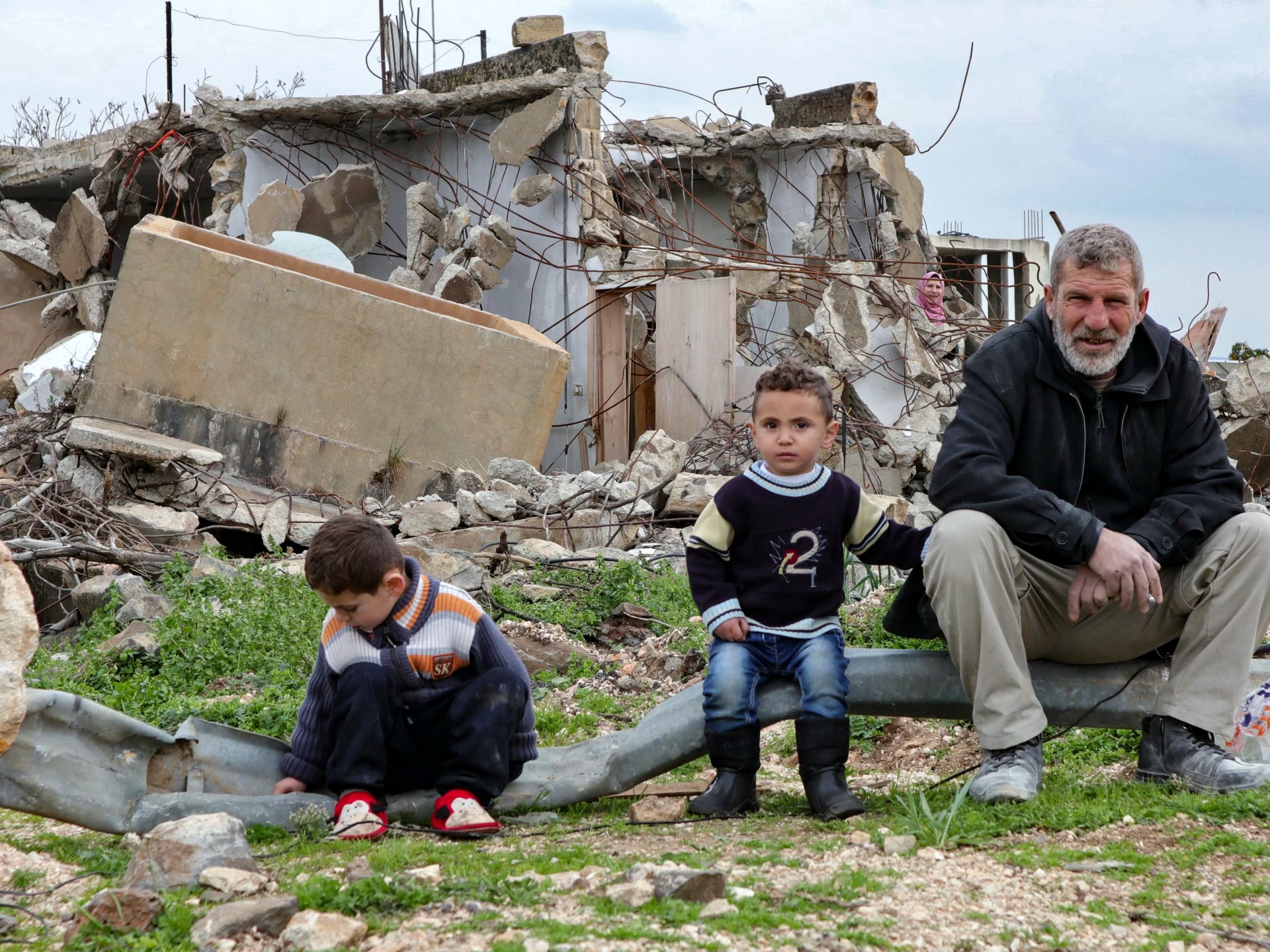
Beirut, Lebanon – More than five years into an economic crisis that sent inflation spiralling and saw the Lebanese lira plummet, Lebanon’s government is facing its biggest infrastructure project in years: Post-war reconstruction.
After 14 months of war with Israel, Lebanon needs $11bn to rebuild, according to World Bank estimates.
But, experts say, donors do not trust the Lebanese political class, which has a track record of funnelling construction contracting money to politically connected businessmen.
The needs
In addition to more than 4,000 deaths, the war took a vast material toll on the country already reeling from a multi-year economic crisis.
About 10 percent of the homes in Lebanon – some 163,000 units – were damaged or destroyed, to say nothing of the more than $1bn in infrastructure damage.
Most observers, and the new government formed in February, say Lebanon will again need foreign aid, as it did after a previous war with Israel in 2006.
But that aid has been slower to arrive than in 2006, with donor attention divided between Lebanon, Syria, and Gaza, and major donors like the United States pushing for the Hezbollah group’s disarmament as a precondition.
Hezbollah, until recently the most powerful political and military force in the country, suffered severe blows during the war and has seen its power curtailed, although many Lebanese continue to support it.
The country’s south, east, and Beirut’s southern suburbs bore the brunt of Israel’s offensive. Together, they are home to most of Hezbollah’s constituents, so restoring their homes and livelihoods is a priority for the party.
That translates into leverage for foreign donor states.
The problem
Politically connected companies overcharged the state’s main infrastructure buyer, the Council for Development and Reconstruction (CDR), by 35 percent between 2008 and 2018, a 2022 study by local think tank The Policy Initiative found.
And the primary contracting regulation was so riddled with exceptions that as little as 5 percent of tenders were under the Central Tenders Board’s oversight.
All that came to a head in 2020, when a huge blast in Beirut’s port tore through much of the capital and donors decided they wanted nothing to do with the state, according to Khalil Gebara, economist and former World Bank consultant who previously advised the Lebanese government.
“Donors stopped transferring money to national authorities or to the treasury,” he said, because they had “a total lack of trust in national mechanisms”.
Instead, donors controlled spending directly or via a World Bank-managed trust fund, or worked through NGOs, Gebara added.
That year, the state, which was stalling on implementing International Monetary Fund conditions in exchange for a partial bailout, spent just $38m on its physical investments, down from more than $1.1bn in 2018, the year before the economic collapse, according to Ministry of Finance data.

Trying for solutions
A year later, Lebanon passed what many considered a landmark reform to state contracting, one of the few reform laws passed in recent years.
It dragged virtually the entire public sector into one unified framework, abolished a classification system that had frozen out contractors without political connections, and created a new regulator – the Public Procurement Authority (PPA).
As crisis-ridden state agencies were corralled into the new system, public investment continued to fall, hitting below $10m in 2022.
“Procurement is going to be a big thing … and absolutely the test for the procurement system and for the regulatory authority,” said Lamia Moubayed, head of an in-house research and training institute at Lebanon’s Finance Ministry.
Rana Rizkallah, a procurement expert at the same institute, says the law is solid, but it’s up to the government to implement what it promised, adding that a crucial part of that is staffing the regulator.
The PPA is supposed to be a board of five members backed by a team of 83 staffers but, three years after the law went into effect in 2022, it has a single member and five employees overseeing 1,400 purchasing bodies.
A four-member complaints board that the law established also has yet to be formed, so complaints still go to Lebanon’s slow, overburdened courts.
Jean Ellieh, the regulator’s president and sole member, says the state doesn’t have the “logistical capacity” to recruit dozens of regulators in one fell swoop, but he’s put in a request for new hires.
“We will work with determination and resolve, regardless of our capabilities,” Ellieh told Al Jazeera. “We will not give anyone an excuse to evade the application of the law.”
He added that donors have expressed “satisfaction” with the PPA’s abilities.
Bonanzas to the well-connected
After several lean years in which the state had to keep spending to a bare minimum, the contracting scene remains dominated by the large companies that built up enough resources from earlier rounds of investment to stay afloat.
Wassim Maktabi, economist and co-author of the 2022 report on cartel behaviour in construction contracting, said it would be a tall order to ensure that reconstruction isn’t another bonanza for the well-connected.
“Rest assured that these political elites will not let this slip,” he said.
In addition, years of high-value contracts mean politically connected firms have accumulated the capital to be, in most respects, bigger and more experienced than competitors.
“Even if political influence was not a factor and you awarded these contracts purely based on merit,” he said, these firms “would still get a large piece of the pie”.

Regardless, Maktabi says, reconstruction is simply too important to stall in pursuit of perfection.
Al Jazeera has identified 152 reconstruction contracts totalling more than $30m that are already under way, via the PPA’s online portal. Of the top four contract winners in dollar terms, two have political connections mentioned in media reports.
The top four companies, Beta Engineering and Contracting, Elie Naim Maalouf Company, Al Bonyan Engineering and Contracting, and Yamen General Trading and Contracting, have won contracts totalling $10.6m, $4.7m, $1.8m, and $1.4m, respectively – 60 percent of the total amount awarded in the PPA contracts examined.
Pushing for reformist credibility
The new government is negotiating with the World Bank on a $980m plan, known as LEAP, to kick-start reconstruction and be funded by a World Bank loan and foreign assistance.
But LEAP would only take care of a fraction of the total reconstruction costs.
The government also started hiring for a long-stalled electricity regulatory board and new faces on the CDR board.

Moubayed says refreshing the CDR board is a World Bank requirement to approve LEAP, which would be a vital win for a government pushing to gain reformist credibility.
The World Bank declined to comment on whether refreshing the CDR board is a requirement.
It’s still unclear how the programme might be structured, but the government has endorsed the creation of a trust fund for post-war reconstruction, “characterised by transparency”.
But, Beirut residents were unhappy with a similar model used in 2020 for the Port blast reconstruction, architect and urbanist Abir Saksouk of Public Works Studio says.
A lack of equity between residents, based on which organisation took over repairing each area, further eroded a sense of shared citizenship, she says, calling it an experience that shouldn’t be repeated.
She is one of many calling for an inclusive reconstruction process led by all stakeholders, including people who have suffered damages, and with the involvement of relevant ministries, because they are a vital part of the process.
“We need a reconstruction framework where state institutions are present… But we also need other representation,” she said.
Middle East
Palestine and the decline of the US empire | Israel-Palestine conflict
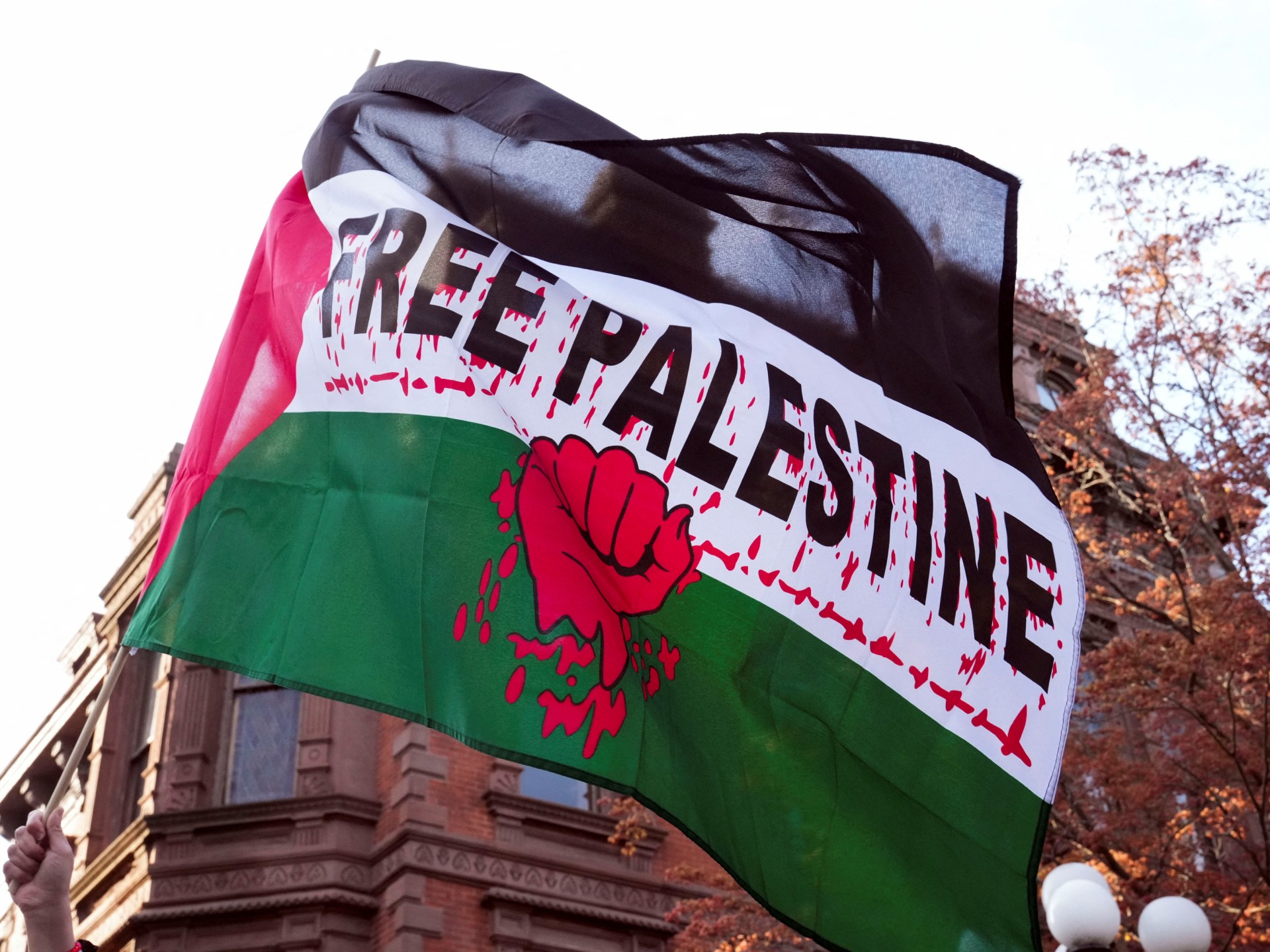
It has been 19 months now since the start of the Israeli war on Gaza. The International Court of Justice is investigating a “plausible genocide”, while the International Criminal Court has issued arrest warrants for Israeli Prime Minister Benjamin Netanyahu and his former Defence Minister Yoav Gallant for war crimes. Scholars of genocide, major human rights organisations, and United Nations experts have identified what is going on in Gaza as genocide. People across the world have marched to call on their governments to act to stop it.
There is a single power that stands in the way of putting an end to this genocide: the United States. One administration has handed over to another, and yet there has been no change in policy. Unconditional support for Israel seems to be a doctrine that the US political establishment is unwilling to touch.
Various analyses have suggested that at the root of this “special relationship” are Judeo-Christian values and a shared democratic path; others have argued that it has to do with the two-party system and the donor class dominating US politics.
But the reality is far simpler. The US views Israel as a critical ally because it helps promote US global supremacy at a time when it is facing inevitable decline. Israel’s survival in its current settler-colonial form – the US elites believe – is closely tied to maintaining US supremacy.
The supremacy of US empire
Since the collapse of the Soviet Union and the end of the Cold War, the US has been leading a unipolar world as the sole superpower.
As a continuation of Western imperial global dominance, the US empire holds much sway over global economic, political, and cultural matters, often with devastating consequences for the lives of millions of people around the world.
Like all empires, the US solidifies and expands its position of supremacy and hegemony in the world through its overwhelming military force. Through the US infrastructure of organised imperial violence, it is able to secure access to and control of resources, trade routes, and markets. This, in turn, guarantees continuous economic growth and dominance.
But in recent years, we have seen signs that US supremacy is being challenged. The momentum to do so built up in the aftermath of the 2008-2009 US financial crisis, which turned into a global one. It demonstrated the negative impact of US supremacy on the world economy and motivated powers such as China and India to take action to protect themselves from it. The BRICS coalition of economies emerged as their shared response on the economic front.
In the following years, various US foreign policy mishaps, including the US failure in Afghanistan, its waning influence in Africa and its inability to prevent the Russian invasion of Ukraine, also demonstrated the limits of US global power.
The rise of US President Donald Trump and far-right populism in the United States reflected the fact that cracks were appearing in the very core of the US-led so-called liberal order.
No empire has ever easily accepted its decline, and neither will the US. It intends to hold onto its status as the unquestionable superpower, and for that, it needs imperial outposts to stand loyally by its side.
Israel – the most reliable imperial ally
Throughout the Cold War, Western Europe and Israel stood as the US’s junior partners in its confrontation with the Soviet Union in Europe and the Middle East. Today, while the decades-old transatlantic alliance seems to somewhat falter, the US-Israeli relationship appears as strong as ever.
Israel has demonstrated loyalty as an imperial outpost. It has played a key role in supporting US imperialism in two ways.
First, Israel helps the US secure its access to and control over one of the most critical markets for any empire: the energy market. The Middle East is an important force in the global energy trade, and its oil and gas policies can have a tremendous impact on the world economy.
What the US fears the most is losing its dominance in the global energy markets to a competing power, which is why it wants to secure its interests by establishing a regional order in the Middle East that overwhelmingly favours its imperial power. This new order is about giving the US a major advantage over any competitor seeking to make inroads into the region, namely China.
For the administration of former US President Joe Biden and its successor, the Trump administration, the Israeli genocide of Palestinians and aggression against neighbouring countries are about establishing this new security reality in the region by eliminating hostile groups and governments. That is why US support for them has not stopped.
Second, Israel plays a critical role in advancing US military supremacy. The US provides Israel with billions of dollars in aid, which is in fact a form of self-investment in developing military capabilities and expanding sales. The Israeli state uses these funds to buy weapons from US arms manufacturers, which then use Israel’s deployment of that weaponry in the Middle East as testing and marketing tools. The US military-industrial complex is thus able to sell more weapons and continue to innovate and grow to ensure the US has a military edge over its rivals.
In this sense, Israel is one of the most critical parts of the US imperial machinery. Without it, the US would find it challenging to maintain its imperial power in the Middle East. It is for this reason that Biden once famously proclaimed that if Israel did not exist, the US would have to invent it.
Free Palestine and global decolonisation
Over the past year, we have witnessed an unprecedented attack on the Palestine solidarity movement in the US, which has affected all public spheres, including education and healthcare. We have also seen an intensification of US threats against states, such as South Africa, for their support for Palestine.
Based on the magnitude of the resources and energy that the US empire expends on the elimination and subjugation of Palestinians, one has to wonder, what is it about a stateless people with no economic and diplomatic capital or military power that terrifies the world’s sole superpower?
The answer is that the US empire views a free Palestine as the beginning of its own end.
The US is actively working to prevent the world from doing the right thing and isolating the Israeli state economically and politically because it fears what may come next. Such isolation would make it difficult for Israel to continue its existence as a settler colonial project, and ultimately could lead to a decolonisation process. The end result of that would be Palestinians and Israelis living together under a new decolonial political system that would be integrated into the region and would no longer serve imperial power.
A decolonised entity in Palestine/Israel would be a major step in the decolonisation of the world order itself and its liberation from US imperial power. And this is what the US dreads.
In this sense, it is in the self-interest of the overwhelming majority of the world’s nations to follow this path. The future of Palestinians, who are facing the real threat of elimination and total subjugation today, depends on this. And the future of many other nations, if they wish to avoid the current unspeakable brutalities that Palestinians are facing all on their own, also depends on this.
As much as the US needs a settler colonial Israel to stave off its decline, the world, particularly the Global South, needs a decolonised Palestine to hasten US decline. Palestine, not just metaphorically but literally, stands in the way of US and Western imperialism’s onward march towards continued global supremacy.
The views expressed in this article are the author’s own and do not necessarily reflect Al Jazeera’s editorial stance.
Middle East
Israel hits Yemen’s Houthi-controlled Sanaa airport in tit-for-tat attack | Houthis News
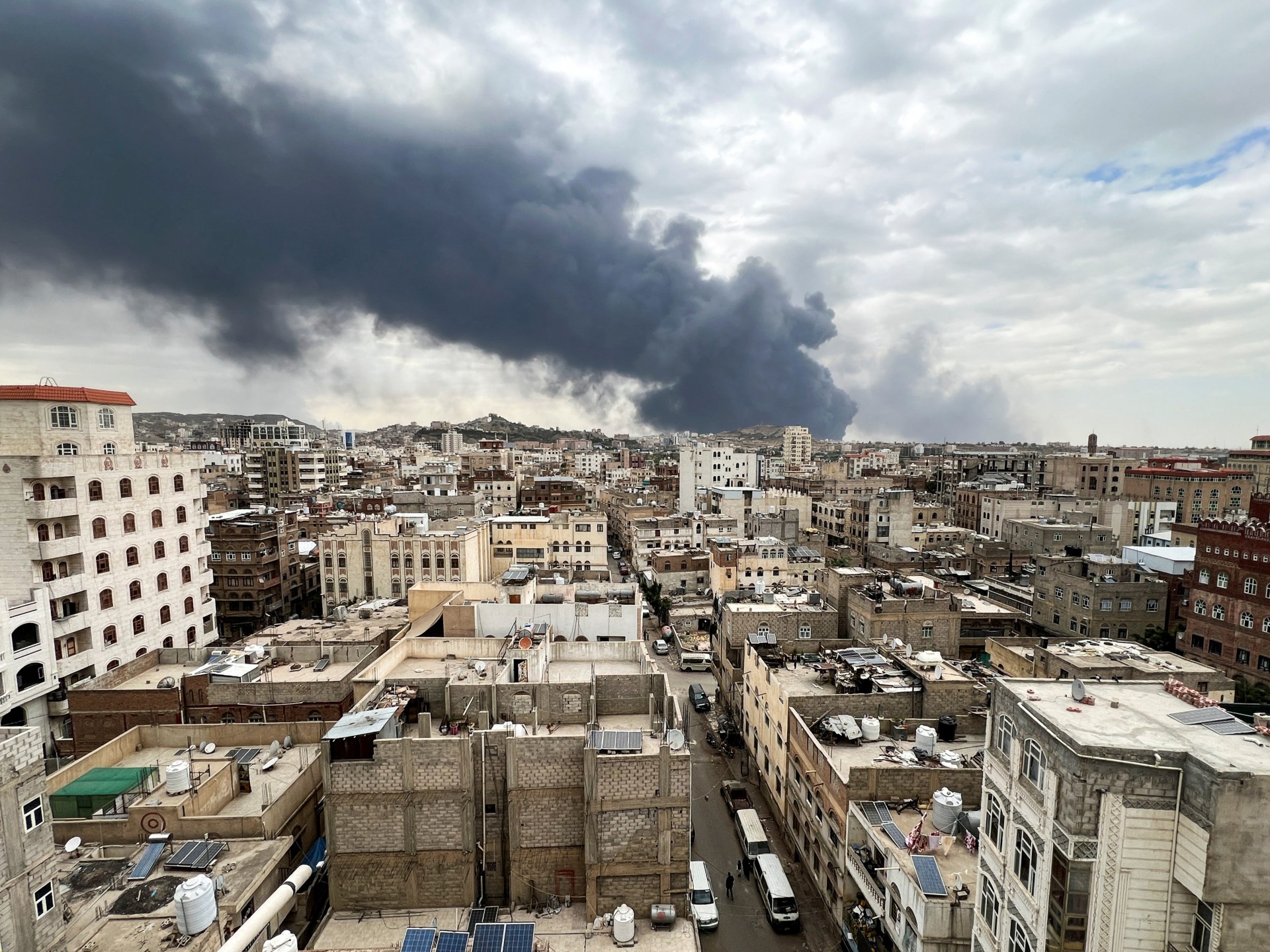
Israeli army claims ‘fully disabling’ the civilian facility, saying it also hit a concrete factory and power stations.
Israel has hit the main international airport of Yemen’s rebel-held capital Sanaa, “fully disabling” the civilian facility, according to the Israeli army.
Tuesday’s attacks that also targeted a concrete factory and several power stations in and around Sanaa came in response to Sunday’s ballistic missile strike near Tel Aviv’s Ben Gurion International Airport, the Israeli military statement said.
The army claimed that “the airport served as a central hub for the Houthi terrorist regime to transfer weapons and operatives”.
“The operation was approved by the Commander of the Air Force and the Chief of Staff,” it said. The military added that it would “continue to act and strike with force” any group that poses a threat to Israel.
Reporting from Sanaa, Al Jazeera’s Mohammed al-Attab said the results of the attacks were not yet clear.
“So far, we don’t know the impacts of this aerial bombardment on Sanaa International Airport or on the power station. We haven’t yet received any reports about casualties or impacts on the infrastructure,” he said.
‘Pure vandalism’
Sultan Barakat, a professor in public policy at Hamad Bin Khalifa University in Qatar, says Sanaa International Airport is “not a big strategic target” and that Israeli claims it is being used to receive supplies from Iran are “simply not true”.
“I think it’s pure vandalism, to be honest. The airport in Sanaa is not a normal airport. It’s under a huge restriction from the United Nations, from the Saudis, from the coalition – it’s under sanctions,” Barakat told Al Jazeera.
He added that attacking the airport will only hinder the operations of the United Nations and humanitarian agencies in one of the poorest countries in the world.
Footage of the aftermath of the airport attack, verified by Al Jazeera’s Sanad fact-checking unit, shows large clouds of dark smoke rising into the air over the capital.
Earlier, the Houthi-affiliated Al Masirah TV confirmed that among the sites targeted is a cement factory to the north of the capital and a power station in the Bani al-Harith area.
The attacks come less than 24 hours after Israel bombed the country’s key Hodeidah port, killing at least one person and wounding 35 others.
The Houthi media office said at least six strikes hit the crucial Hodeidah port. Others hit a cement factory in the district of Bajil, 55km (34 miles) northeast of Hodeidah, the group added.
The Israeli military said the strikes sought to undercut the Houthi military industry, claiming the factory is an “economic resource” for the Houthis and “used to build tunnels and military infrastructure”.
Since November 2023, the Houthis, also known as Ansar Allah, have launched more than 100 drone and missile attacks targeting vessels they said are linked to Israel in the Red Sea. The group says that it acts in support of the Palestinians in Gaza and that its attacks will stop only when there is a permanent ceasefire in the enclave.
Although the Houthis paused attacks during a fragile ceasefire in Gaza this year, they resumed their operations after Israel cut off humanitarian aid to Gaza and resumed its offensive in March.
The United States military under US President Donald Trump has launched an intensified campaign of air strikes on war-torn Yemen since March 15.
Israel has repeatedly struck Yemen, killing dozens of people, including women and children.
Middle East
Israel has turned 70% of Gaza into no-go zones, in maps | Israel-Palestine conflict News
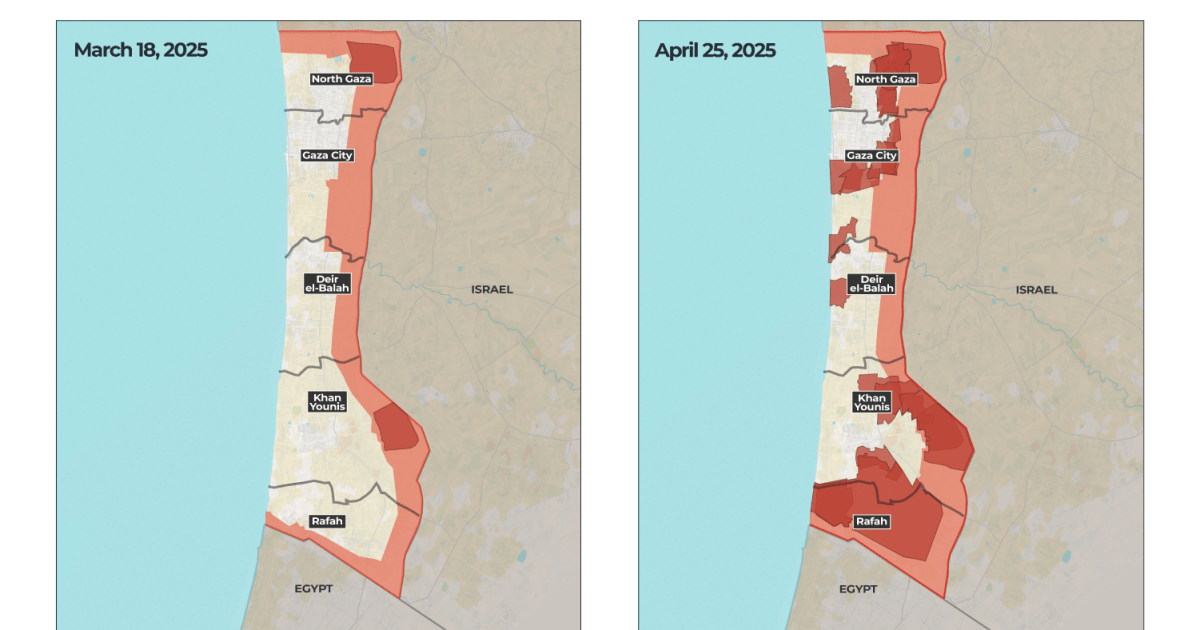
Since Israel broke the ceasefire, it has declared most of Gaza as no-go zones, forcing expulsions amid attacks and blocking of all humanitarian aid.
Israel has restricted Palestinians’ access to 70 percent of Gaza, either by declaring large areas as no-go zones or issuing forced displacement orders, according to the United Nations Office for the Coordination of Humanitarian Affairs (OCHA).
In southern Gaza, much of Rafah governorate has been declared a no-go zone, placed under forced displacement orders by the Israeli military since late March. In the north, nearly all of Gaza City is under similar orders, with only small pockets in the northwest still exempt. Entire areas east of the Shujayea neighbourhood and along the Israeli border have been declared a restricted zone.
The animated map below shows how Israel’s military has expanded its forced displacement orders since breaking the ceasefire on March 18.
Israel’s Gaza occupation plan
On Monday, Prime Minister Benjamin Netanyahu said Gaza’s more than two million people “will be moved” in a new ground offensive that will involve Israeli troops holding on to seized territory, establishing a “sustained presence” in Gaza.
This follows the unanimous approval by Netanyahu’s cabinet to call up 60,000 reservists and place the Israeli military in control of delivering food and other essential supplies to Gaza’s starving population.
Israel prioritising territorial control
Reporting from Deir el-Balah, in central Gaza, Al Jazeera correspondent Tareq Abu Azzoum said Palestinians view the Israeli ground offensive in Gaza and reoccupation of much of its territorial landscape as a form of collective punishment and an attempt to change the demographic and political map of Gaza.
Many Palestinians understand that Israel is prioritising territorial control over any political solution, and many shared their fear and panic regarding the possibility of not being able to return to their homes.
They also believe that Israel is trying not just to dismantle the military capabilities of Hamas, as the Israeli military spokesperson and Netanyahu have stated, but they are also trying to empty Gaza of its residents and to suffocate civilians.
Israel will do this by using humanitarian language alongside military tactics, including an expanded ground offensive and tightening its grip on the flow of aid to Gaza.
But there was a general and clear sentiment of defiance among many Palestinians. Social media is filled with messages of resilience and people saying they will not leave Gaza, whatever the cost.
Gaza facing ‘extreme risk of famine’
The Palestine Red Crescent Society (PRCS) says Gaza is facing “extreme risk of famine” with no food remaining in markets and aid distribution centres.
Israeli human rights group B’Tselem has accused Israel of “using starvation as a method of warfare” in Gaza. Half of those being starved by Israel are children, the prominent rights group said.
“[On] the nutritional front, the population is facing once again an extreme risk of famine,” the PRCS said in its latest situation update.

“There is an inability to meet even the minimum daily needs of over a million displaced people,” it said.
The PRCS’s food stocks allocated for displaced people are now “completely depleted”, with “limited quantities of legumes” being “distributed to community kitchens to cover some of the basic needs of displaced individuals”.
Since Israel broke the nearly two-month-long ceasefire with Hamas on March 18, its military has killed at least 2,459 Palestinians in Gaza, bringing the total number of confirmed killed in the besieged Strip to 52,567.
-

 Asia2 days ago
Asia2 days agoJapan and China accuse each other of violating airspace near disputed islands
-

 Middle East1 day ago
Middle East1 day agoIsrael bombs Yemen’s Hodeidah port after attack near Tel Aviv | Politics News
-

 Lifestyle2 days ago
Lifestyle2 days agoHow to make a colorful romaine and radicchio salad
-
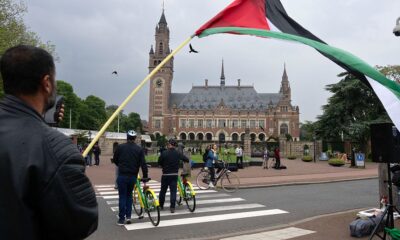
 Africa1 day ago
Africa1 day agoDemonstrators angry at ICJ’s decision to dismiss Sudan’s genocide case against UAE
-
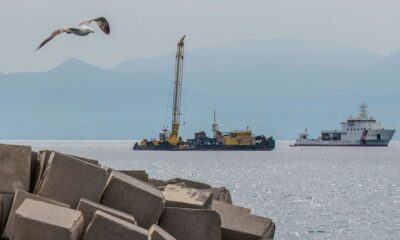
 Europe2 days ago
Europe2 days agoBayesian: Operation to recover sunken superyacht begins off Italy’s Sicilian coast
-

 Conflict Zones1 day ago
Conflict Zones1 day agoGunmen kill three police officers in southern Russia’s Dagestan region | Crime News
-

 Africa1 day ago
Africa1 day agoDRC: M23 rebels seize strategic town despite peace talks
-
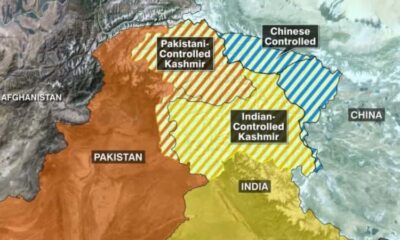
 Asia1 day ago
Asia1 day agoKashmir Fast Facts | CNN



